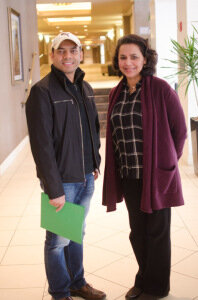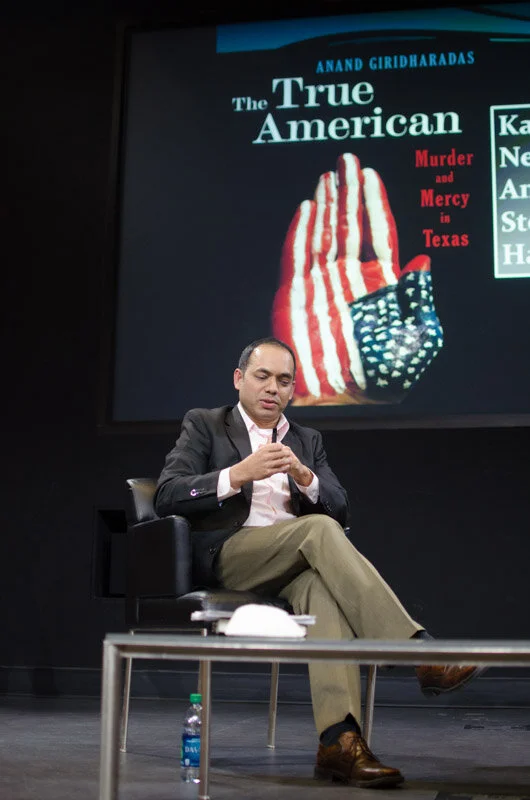A World Without Hate - Rais Bhuiyan
Last year, a friend told me about a book called “The True American” by New York Times columnist Anand Giridharadas. Given what’s happening in our country today, from Charleston to Chapel Hill, and around the world, this is a story we all need to know.It’s the story of Rais Bhuiyan, a Bangladeshi Air Force officer who decides to immigrate to the U.S. to realize the American dream. Days after 9/11, Mark Stroman, a meth addict with a shaved head and racist tattoos who calls himself an "American terrorist", decides to avenge the attacks by “hunting Arabs”. He walks into a Dallas minimart where Rais is working and shoots him at close range with a sawed-off shotgun, nearly killing him. He kills two others at nearby gas stations. Stroman is sent to death row. Rais looses his eye, has dozens of pellets embedded in his face, and undergoes several surgeries. He tries to rebuild his life, in a new country, without a job, a house, insurance, money, support, or family.Ten years later, he takes his mother for the Hajj pilgrimage. He had already forgiven Stroman, but after Hajj he decides that in order to fully heal and keep the promise he made to God the night he almost died, he must save Stroman's life. His faith teaches him that, as the Quran states, “if anyone saves a life, it shall be as though he has saved the lives of all mankind.” He spends the next several years waging a legal and public relations campaign to commute Stroman's death sentence. In the end, he’s unsuccessful. Hours before Stroman's execution, they speak for the first time. Rais says, "I forgive you and I do not hate you". Stroman responds, "You are a remarkable person. Thank you from my heart. I would never have expected this. I love you bro."Our MoverMoms’ book club discussed “The True American” the day we learned of the shooting of three young American Muslims in Chapel Hill, North Carolina. To discuss Rais’ story at a time when we were experiencing another tragic hate crime against Muslims, 13 years later, was truly painful and beyond disheartening.I had the chance to interview Rais a few weeks later in Chicago. We talked about the Chapel Hill murders, hate crimes around the world, how to promote tolerance and understanding, and where he gets his incredible depth of forgiveness.“I did not label [Stroman] as a white supremacist; I did not label him as a white Christian. I labeled him as a human being who is in pain,” says Rais about the man who tried to kill him. “I thought if I were in his shoes on death row, what would I expect from others. Some mercy and a second chance.”He says we have to focus on how we can prevent such crimes from happening; educate each other, have mercy for one another. “We don’t want to hate them, because they are victims of something too.” Rais recognizes that terrible things happened, but he is focused on finding a way forward, to a world without hate – the name of the organization he founded. “I kept asking God to help me find the good. I didn’t want people to remember this incident just as a murder, but to remember it as a turning point, as a new narrative.”Rais sees himself working as a ‘forgiveness ambassador’, which he says is different from a peace ambassador. Forgiveness is a powerful tool, which is highly underutilized, he says. “The world is in an extremely painful place, there are too many wounds.” He feels that forgiveness will help heal the wounds; otherwise the cycle will never break. “You hurt me in the past, now it’s my time to hurt you; that’s where we are right now, going back and forth. But somebody has to stand up and say, ok, let’s stop it here.”To learn more about Rais’ story and to support his efforts, please visit and donate to World Without Hate: http://worldwithouthate.org

